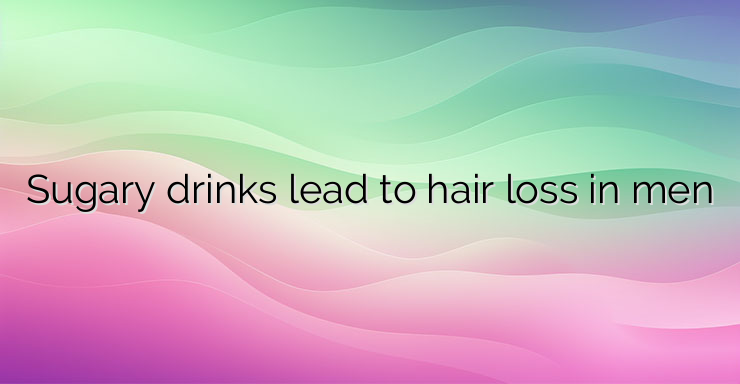Consumption of sugar-sweetened beverages leads to hair loss among men. This was revealed by a team of specialists from Tsinghua University in Beijing, China. Male pattern baldness is the most common form of hair loss, affecting 30% to 50% of men approaching the age of 50. Due to the significant increase in the incidence of male pattern baldness – by about 5% over a period of 10 years, scientists are following the peculiarities in the daily lives of those affected to determine possible risk factors for the appearance of this problem. In the study by specialists from Tsinghua University, 1,028 students and teachers with an average age of 28 years from 31 provinces in China were included. For the purpose of the study, the participants fill out a questionnaire in which they provide basic socio-demographic information, describe the condition of their hair, their dietary intake, the peculiarities of their lifestyle, as well as their psychological status. The amount of sugar-sweetened beverages consumed was determined by their responses to a beverage-specific questionnaire that tracked their intake over the past month. Some of the beverages participants consumed included sweetened juice, other soft drinks, energy and sports drinks, sweetened milk, and sweetened tea and/or coffee. 57.6% of the people included in the study reported the presence of male pattern hair loss. With the help of the questionnaire, specialists found that more often men with hair loss are older, are current or former smokers, have a lower level of education, are less likely to engage in various types of physical activity, have more short sleep duration, have experienced a traumatic situation or have post-traumatic stress disorder, have a positive family history of male pattern baldness, suffer from a disease that is associated with hair loss, or have dyed or permed hair. Another significant difference that scientists note is in the consumption of sweetened beverages. People with male pattern hair loss consumed an average of 4.3 liters of sugar-sweetened beverages per week compared to just 2.5 liters among those not affected by the condition. The experts noted that the association between the consumption of sugar-sweetened beverages and male pattern hair loss did not change even after excluding various confounding factors, including socio-demographic factors, dietary intake and psychological status. Information about the conducted research was published in Nutrients magazine. References: https://www.mdpi.com/2072-6643/15/1/214


Leave a Reply